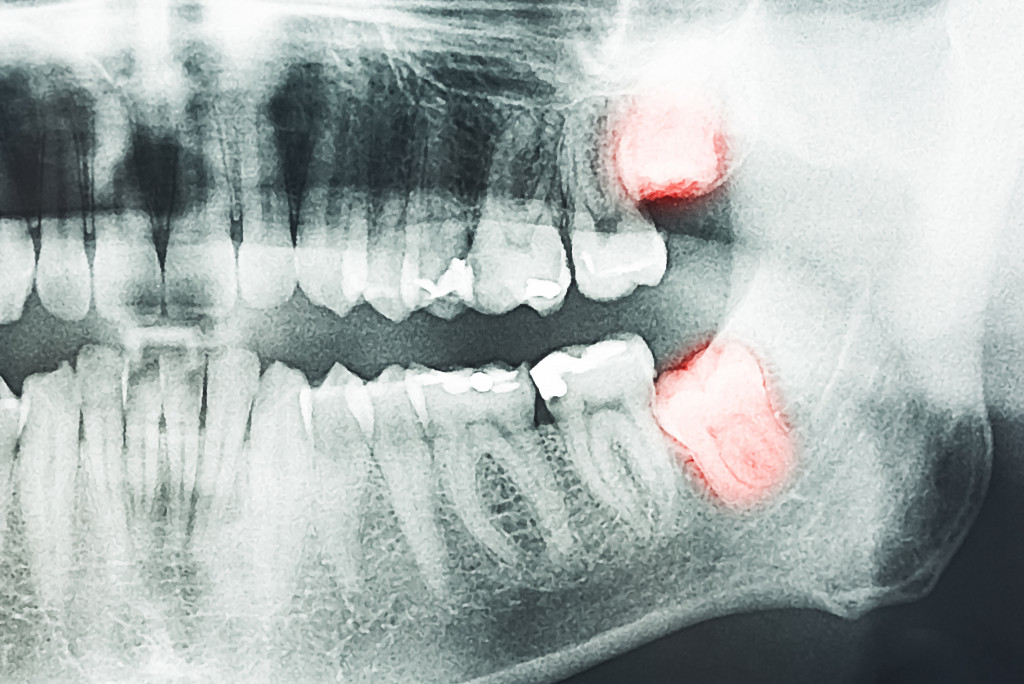- Consult a dentist to determine the best treatment plan, wherein they may suggest implants to replace your extracted tooth.
- Manage pain with over-the-counter medication, ice packs, warm compresses and home remedies.
- Maintain good oral hygiene practices for optimum dental health.
- Eat soft foods to aid recovery.
- Practice relaxation techniques for stress relief and symptom management.
Having a wisdom tooth can be a painful and disruptive experience. Not only can it cause physical pain and discomfort, but the emotional burden of dealing with the issue can also be stressful. Fortunately, some tips can help you manage your wisdom teeth and ease your symptoms. This guide will look at five key tips to deal with a wisdom tooth and how they can improve your overall well-being.
1. Consult a Dentist to Determine the Best Treatment Plan
It is important to consult a dentist to determine the best treatment plan for your wisdom tooth. Depending on the severity of the issue, a professional may recommend dental implants as durable tooth replacements if necessary. Dental implants are a long-term solution that can help restore your teeth’s appearance and functionality.
Your dentist will assess your medical history and thoroughly examine the area around the wisdom tooth to develop an appropriate treatment plan for you. X-rays may also be taken to accurately diagnose the problem and determine if any underlying damage requires attention.
2. Learn About Pain Management
After having a wisdom tooth extracted, it’s important to be aware of the potential for pain. Pain is a normal part of healing, and preparing for discomfort is important. Discuss with your dentist or oral surgeon what to expect regarding pain management.
Here are some other ways to manage pain:
Over-the-Counter Medication

Over-the-counter pain relievers, such as ibuprofen or acetaminophen, can help reduce inflammation and relieve discomfort. Always follow the dosage instructions on the package.
Ice Pack
Applying an ice pack to the side of your face where the wisdom tooth was extracted can help reduce swelling. Make sure to wrap the ice pack in a cloth so it doesn’t contact your skin directly.
Warm Compresses
After 24-48 hours post-surgery, warm compresses can be applied to the side of your face for 15 minutes. This may reduce pain and help promote healing.
Home Remedies
Many people have found home remedies, such as eating soft foods like yogurt or applesauce, to help manage wisdom tooth extraction pain. Drinking herbal teas can also be beneficial when dealing with soreness and inflammation. It’s important to speak with your dentist prior to trying any home remedies. They can provide further advice on what is best for your specific situation.
3. Maintain Good Oral Hygiene Practices
It’s important to pay special attention to your oral hygiene when you have a wisdom tooth, as it can be more prone to decay and gum disease due to its position in the back of the mouth and difficulty reaching with a toothbrush.
Brushing twice daily and flossing at least once is recommended for optimal dental health, but it is especially important when managing a wisdom tooth. Visit your dentist regularly to ensure you are taking appropriate steps to protect your oral health and that any issues with the wisdom tooth can be identified and addressed early on.
4. Eat Soft Foods to Aid Recovery

It’s important to eat soft foods after your wisdom tooth extraction. Soft foods, such as mashed potatoes, applesauce, yogurt, soups and pureed vegetables, can be easier for your body to digest and provide essential nutrients. Eating soft foods will also help keep the area around your extracted teeth clean and speed up healing time.
These types of foods are less likely to get stuck in the extraction site and cause pain or irritation. Eating soft foods can help you stay nourished while your mouth is healing. Avoid extremely hot or cold items, as this may cause discomfort or slow your recovery time. Finally, eating small meals throughout the day can help prevent nausea or vomiting.
5. Practice Relaxation Techniques
Relaxation techniques can help to manage the pain and discomfort associated with a wisdom tooth. Regularly practicing relaxation exercises such as deep breathing, guided imagery, progressive muscle relaxation (PMR), and mindfulness meditation can help reduce stress and anxiety that may exacerbate symptom intensity.
Research suggests these techniques prevent further sensitization of nerve pathways and help to reduce the experience of pain. Relaxation techniques also promote a sense of control and allow for an opportunity for distraction from discomfort.
Closing Thoughts
Having wisdom teeth extracted can be an uncomfortable experience, but you don’t have to suffer alone. By following these five tips, you can ensure that your recovery is smooth and comfortable. Be sure to consult with a dentist as soon as possible to discuss the best treatment plan for you. You’ll feel better in no time with proper care and relaxation techniques.

